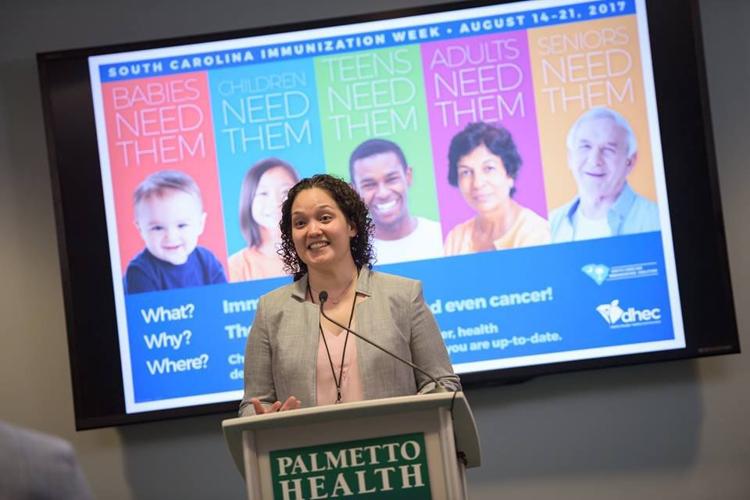The topic of seasonal flu vaccinations tends to resurface around this time of year as the weather turns colder and the days grow shorter.
While the flu shot is important, it is not the only vaccine people need to get.
"Preteens and teens need immunizations to protect against whooping cough, meningitis and certain types of cancers. Adults and seniors need immunizations to protect against serious diseases such as … whooping cough, shingles and pneumonia," according to a news release from South Carolina Department of Health and Environmental Control.
It is recommended that everyone get vaccinated, from infancy through their adult years.
“There is a misconception among many adults that vaccines are just for children,” said Dr. Lilian Peake, SCDHEC's director of public health, in a news release. “The truth is that you never outgrow the need for immunizations.”
The type of vaccine recommended to a person is based on his or her age. For example, it is advised that babies between the age of 2 to 6 months receive immunizations to protect against diseases such as rotavirus, and that a person should start receiving his or her annual flu vaccine when he or she turns 6 months old, according to the CDC.
"Babies, kids, teens, by the time they are 18, they are protected from 16 different diseases, which is great," Dr. Tracy Foo, medical consultant for SCDHEC's immunization division.
Vaccines benefit more than their recipient.
"The reason they are recommended for everyone is they can prevent disease. They can prevent complications of diseases," Foo said. "It also protects your family and community. It also protects those people around you who may have weak immune systems; people who have chronic disease like heart disease, asthma, diabetes; those older adults; babies who their immune systems may not be working as well. ... So if you protect yourself, you are not getting that disease, and you are not spreading it to other people. And that's really important."
Some vaccines are one time deals, but that is not always the case.
"Some of these vaccines, you are just recommended to get just one or two vaccines, and it will protect you against that disease pretty much for life," Foo said. "There are some vaccines that you do need to have boosters, for example, like tetanus."
With there being so many different types of immunizations, it can be tricky to know which ones you need and when you need them.
"One of the best resources is to talk to your healthcare provider or your health department, and they will give you the information as to what vaccines are needed for you and your family," Foo said.
The CDC also has schedules available for all ages: www.cdc.gov/vaccines/schedules.





